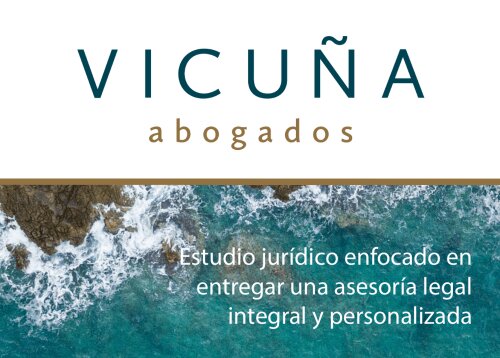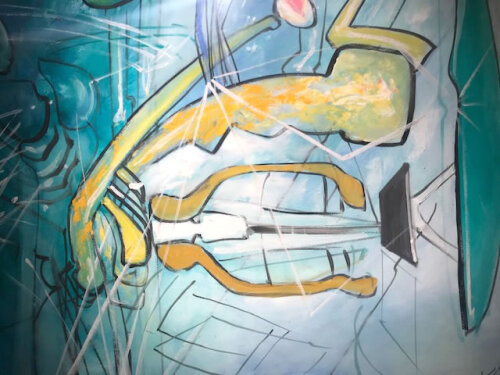Best Public-Private Partnerships (PPP) Lawyers in Chile
Share your needs with us, get contacted by law firms.
Free. Takes 2 min.
Or refine your search by selecting a city:
List of the best lawyers in Chile
About Public-Private Partnerships (PPP) Law in Chile
Public-Private Partnerships (PPP) in Chile refer to collaborative agreements between government bodies and private sector entities to finance, construct, operate, and maintain infrastructure projects or deliver public services. The Chilean PPP model is most often used in sectors like transportation, energy, social infrastructure, and utilities. PPPs aim to leverage private investment and expertise in areas traditionally managed by the public sector, improving efficiency, transferring certain risks, and facilitating development.
The main regulatory framework for PPPs in Chile is the Concessions Law, which dates back to 1991 and has gone through several updates. It establishes the procedures and requirements for awarding concessions and outlines how private actors can participate in infrastructure projects such as highways, airports, hospitals, and prisons. The Ministry of Public Works (Ministerio de Obras Públicas or MOP) is the main authority in charge of managing and overseeing PPP projects.
Why You May Need a Lawyer
Engaging in a PPP project in Chile involves a complex legal and regulatory environment. Experienced legal counsel is crucial for private sector participants, public entities, investors, financial institutions, and consultants. Common situations where legal help is important include:
- Understanding and interpreting tender documentation and concession contracts
- Participating in bids or tenders for PPP projects
- Negotiating terms with public authorities
- Managing project finance and risk allocation
- Dealing with disputes, contract modifications, or early terminations
- Navigating environmental, tax, and labor regulations
- Ensuring compliance with Chilean public procurement and competition laws
Legal assistance ensures that your interests are protected, reduces the risk of costly mistakes, and helps navigate interactions with governmental agencies throughout the PPP lifecycle.
Local Laws Overview
Several laws and regulations shape the PPP environment in Chile. The most relevant are:
- The Concessions Law (Law No. 18,786): The primary legal instrument for private participation in public infrastructure, outlining the rights, obligations, and procedures for concessionaires and the state.
- Public Bidding Regulations: Concession projects are generally awarded through a transparent and competitive tender process with specific technical and financial evaluation criteria.
- Risk Sharing: Agreements detail risk allocations between the public and private sectors, including construction, operation, finance, and demand risks.
- Financing and Guarantees: PPP projects usually involve complex financial structuring, often supported by government guarantees, multilateral agencies, and private banks.
- Dispute Resolution: The Concessions Law establishes arbitration as the primary method of resolving disputes, though some matters may fall under regular court jurisdiction.
- Environmental and Social Requirements: Projects must comply with Chilean environmental impact assessment rules and community engagement standards.
- Termination and Extension: Concession contracts define triggers for early termination and procedures for contract extensions or handbacks.
Frequently Asked Questions
What types of projects are typically structured as PPPs in Chile?
Common PPP projects include highways, airports, hospitals, energy plants, railways, prisons, and public buildings. The model is also expanding to water infrastructure, social housing, and schools.
Who oversees PPP projects in Chile?
The Ministry of Public Works (MOP) is the primary overseeing authority. Specific sectors, such as health or transport, may involve other ministries, but MOP manages most infrastructure PPPs.
How are PPP contracts awarded?
Contracts are awarded through public tenders. Interested firms submit technical and financial proposals, which are evaluated using pre-established criteria, ensuring transparency and competition.
Can foreign investors participate in PPPs?
Yes, foreign investors and companies can fully participate in PPP projects in Chile without major restrictions. They must comply with local legal, tax, and environmental standards.
How is risk typically allocated in Chilean PPPs?
Risks are allocated to the party best able to manage them. Construction and performance risks often sit with the private partner, while political and regulatory risks are usually retained by the public sector.
What legal protections are available for private partners?
PPP contracts are legally binding. The Concessions Law and other applicable legislation provide contractual certainty, define compensation mechanisms, and uphold the right to arbitration if disputes arise.
How are disputes resolved?
Most PPP contract disputes are resolved through arbitration as specified in the contract. Certain issues may require recourse through the Chilean courts.
Are there special environmental or social requirements?
Yes, PPP projects must adhere to Chile’s Environmental Impact Assessment System (SEIA) and include stakeholder consultation and mitigation plans for social impacts.
Is project finance commonly used for PPPs?
Yes, project finance structures are common, with financing often provided by a mix of local and international banks, institutional investors, and multilateral agencies. The legal framework enables lenders to secure their interests.
Can a PPP contract be amended or terminated early?
Yes, PPP contracts can be amended if both parties agree. Early termination can occur under specific conditions, commonly defined in the contract, including public interest, breach, or force majeure events.
Additional Resources
For further information or guidance, the following resources can be helpful:
- Ministry of Public Works (Ministerio de Obras Públicas) - Oversees most PPP projects in Chile
- Chilean Public Works Concessions Directorate (Dirección General de Concesiones) - Provides updates and information about ongoing and planned PPP projects
- InvestChile - Official government agency for foreign investment, offering support for international participants in PPPs
- Superintendencia de Valores y Seguros (SVS) - Regulatory body for financial and securities matters relevant to PPP financing
- Chilean Bar Association (Colegio de Abogados) - Helps find legal professionals with PPP and infrastructure expertise
- Environmental Impact Assessment System (SEIA) - For regulations and requirements on environmental compliance
Next Steps
If you are considering participating in a Public-Private Partnership in Chile or are already involved and need legal assistance, follow these steps:
- Clearly define your participation goals and project interests
- Gather all relevant documents, including tenders, contracts, and correspondence
- Identify potential partners, consultants, or financiers you may work with
- Consult with a lawyer experienced in PPPs and Chilean infrastructure law
- Discuss your project and legal needs in detail, including risk allocation, compliance, financing, and dispute resolution
- Request a legal review of project documents and regulatory requirements
- Follow your lawyer’s advice before making commitments or signing contracts
An experienced legal advisor can help you navigate the complexities of PPPs in Chile, maximize your opportunities, and safeguard your interests throughout the project lifecycle.
Lawzana helps you find the best lawyers and law firms in Chile through a curated and pre-screened list of qualified legal professionals. Our platform offers rankings and detailed profiles of attorneys and law firms, allowing you to compare based on practice areas, including Public-Private Partnerships (PPP), experience, and client feedback.
Each profile includes a description of the firm's areas of practice, client reviews, team members and partners, year of establishment, spoken languages, office locations, contact information, social media presence, and any published articles or resources. Most firms on our platform speak English and are experienced in both local and international legal matters.
Get a quote from top-rated law firms in Chile — quickly, securely, and without unnecessary hassle.
Disclaimer:
The information provided on this page is for general informational purposes only and does not constitute legal advice. While we strive to ensure the accuracy and relevance of the content, legal information may change over time, and interpretations of the law can vary. You should always consult with a qualified legal professional for advice specific to your situation.
We disclaim all liability for actions taken or not taken based on the content of this page. If you believe any information is incorrect or outdated, please contact us, and we will review and update it where appropriate.
Browse public-private partnerships (ppp) law firms by city in Chile
Refine your search by selecting a city.













